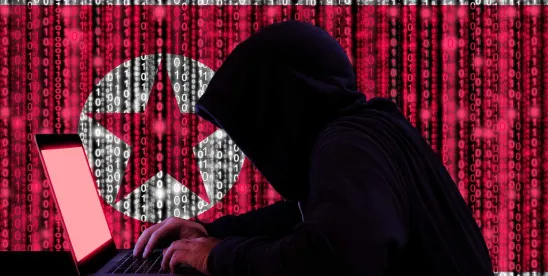In a significant development, the Department of Justice (DOJ) indicted 14 North Korean nationals on December 11, 2024 for their involvement in a sophisticated scheme to defraud U.S. companies and violate international sanctions. This case underscores the persistent threat posed by North Korean cyber actors who pose as residents of the U.S. and exploit global IT networks to funnel money back to the DPRK regime.
The Scheme
The indictment reveals a multi-year conspiracy orchestrated by North Korean-controlled companies, Yanbian Silverstar and Volasys Silverstar, operating out of China and Russia. These companies employed North Korean IT workers who used false identities to secure remote work positions with U.S. companies and nonprofit organizations. The scheme involved:
- Identity Theft: The conspirators used stolen or borrowed identities of U.S. citizens to apply for jobs, masking their true origins.
- Cyber Extortion: They sometimes accessed sensitive company information, including proprietary source code, which they then threatened to leak unless extortion payments were made.
- Money Laundering: The illicit proceeds, estimated at $88 million, were laundered through U.S. and Chinese financial systems to benefit the North Korean government.
Impact on U.S. Companies
The scheme posed significant risks to U.S. companies, including:
- Financial Losses: Companies suffered substantial financial damages, both from extortion payments and the loss of proprietary information.
- Data Breaches: Unauthorized access to sensitive business information could have long-term repercussions on competitive positioning and innovation.
- Identity Compromise: U.S. individuals whose identities were stolen also faced potential legal and financial issues.
Government Response
DOJ’s action is part of a broader initiative to disrupt North Korean cyber activities. Key measures taken include:
- Indictments and Seizures: The indictment is the latest in a series of legal actions, including the seizure of $2.5 million and 29 internet domains used in the scheme.
- Rewards for Information: The State Department is offering up to $5 million for information leading to the disruption of these illicit activities.
- Public Awareness: Authorities have issued advisories to help companies recognize and mitigate such threats, emphasizing the need for thorough vetting of remote IT workers.
The Bigger Picture
This case is part of an ongoing battle against North Korea’s efforts to circumvent international sanctions. The DPRK has trained thousands of IT workers, referred to as “IT Warriors,” to generate revenue through fraudulent means. These workers can earn up to $300,000 annually, contributing significantly to North Korea’s economy and its prohibited weapons programs.
How Companies Can Protect Themselves
Businesses should take proactive steps to safeguard against these types of threats:
- Robust Vetting Processes: Verify the identities and credentials of remote workers.
- Cybersecurity Measures: Strengthen cybersecurity protocols to detect and prevent unauthorized access to sensitive information.
- Awareness and Training: Educate employees about the risks of cyber extortion and identity theft, promoting a culture of vigilance.
Takeaways
The case serves as a reminder of the global nature of cyber threats and the importance of international cooperation in combating them. The indictment of these 14 North Korean nationals marks a critical step in countering cyber fraud and sanctions evasion by the DPRK. As DOJ and its partners continue to disrupt these activities, businesses should be vigilant and proactive in protecting their assets and information.




 />i
/>i
